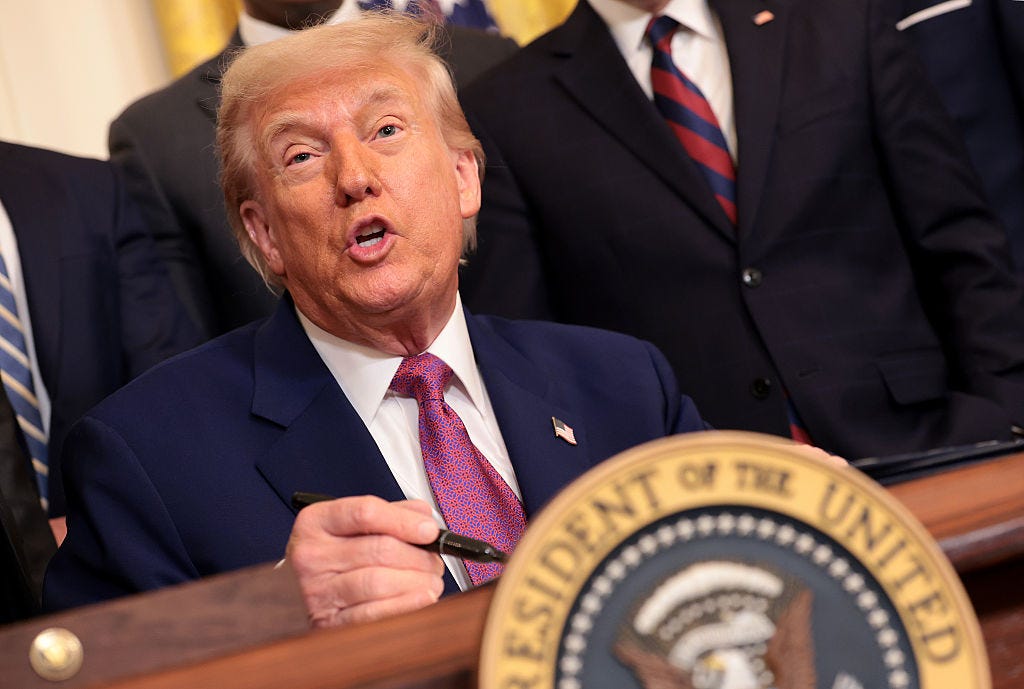Judge won't cancel Trump deposition in D.C. hotel case
A judge has turned down Donald Trump’s request to skip or limit a deposition scheduled next month for a lawsuit he filed against José Andrés’ companies after the renowned chef backed out of plans to open a restaurant in the newest Trump hotel in Washington, D.C.
D.C. Superior Court Judge Jennifer Di Toro denied in an order issued Wednesday evening a motion by Trump’s attorneys to cancel the deposition and otherwise restrict the length and the scope of questions asked by Andrés’ team. Mr. Trump’s attorneys had argued that because the president-elect “is extremely busy handling matters of very significant public importance,” he should not have to sit through a deposition session that could last up to seven hours. They also asserted that Mr. Trump “has not been involved in this dispute and, therefore, has only limited knowledge of the facts at issue.”
The request from Mr. Trump’s attorneys is part of a lawsuit against Andrés’ companies Topo Atrio LLC and ThinkFoodGroup LL, after the restaurateur broke his contract for a new dining establishment slated to open at the Trump hotel located in D.C.’s Old Post Office. After Andrés cited Mr. Trump’s controversial campaign trail comments against Mexicans and undocumented immigrants as the reason he could no longer do business with the hotel, the Trump team sued over a breach of contract.
In a counterclaim, Andrés’ attorneys had said Mr. Trump’s disparaging remarks were a breach of an implied covenant of good faith and fair dealing: “The perception that Mr. Trump’s statements were anti-Hispanic made it very difficult to recruit appropriate staff for a Hispanic restaurant, to attract the requisite number of Hispanic food patrons for a profitable enterprise, and to raise capital for what was now an extraordinarily risky Spanish restaurant.”
Di Toro found that Mr. Trump’s latest request to cancel or postpone the deposition “would cause significant prejudice to the Defendants by inhibiting their right to prepare the case for trial.” For Mr. Trump, it would only lead to “minimal, if any, prejudice,” considering the Andrés team had agreed to accommodate the president-elect’s schedule. The judge further noted that the president-elect’s “own statements are at the heart of Defendants’ counterclaim” and that “it is apparent that Mr. Trump may have relevant personal knowledge of the facts and circumstances of this case.” The judge offered up the sublease agreement, personally signed by Mr. Trump, as proof.
The president-elect’s team also requested the judge restrict the amount of time on the deposition, as well as limit the scope of the questions so as not to be “duplicative” of a deposition by another restaurateur who backed out of the Trump hotel, celebrity chef Geoffrey Zakarian. The Trump team said that repeating similar questions would be “harassing, annoying, and oppressive.”
Di Toro denied that plea as well, saying Andrés and his companies, as defendants, should be able to have “the full and fair opportunity to secure the information that is necessary to the preparation of their case for trial.”
Mr. Trump’s deposition is slated to take place in New York City during the first week of January, just weeks before his inauguration to the White House.



